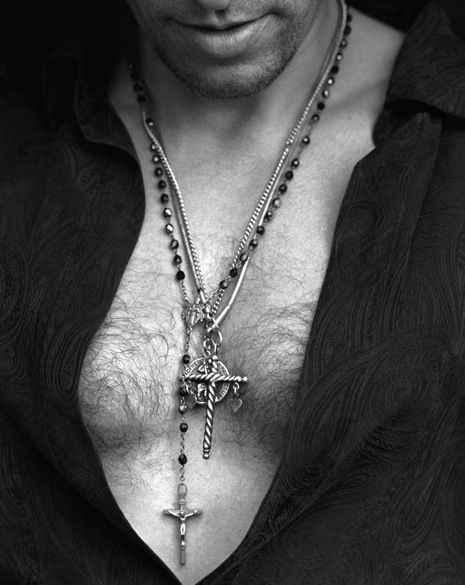After spending decades immersed in Bruce Springsteen's catalog, one thread becomes impossible to ignore: his profound engagement with biblical imagery and themes. Far from casual references, the Boss weaves scripture into his songwriting with the precision of a theologian and the passion of someone wrestling with fundamental questions about American life, family bonds, and spiritual meaning.
What emerges from this examination isn't traditional religious music but something more complex—a working-class liberation theology that transforms ancient stories into contemporary struggles for dignity, redemption, and belonging. Springsteen once acknowledged his Catholic upbringing's lasting influence: "Once you're a Catholic there's no getting out." But rather than dogmatic adherence, his biblical references create what scholar Azzan Yadin-Israel calls "Springsteen's Midrash"—interpretive commentary that sheds new light on familiar passages.
Genesis reimagined: the weight of inherited sin
No song demonstrates Springsteen's biblical sophistication more powerfully than "Adam Raised a Cain" from Darkness on the Edge of Town. The title alone signals his intention to explore the foundational story of human failure and its consequences. But this isn't Sunday school material—it's a scorching examination of how familial patterns of pain perpetuate across generations.
Advertisement
The song opens with a baptism that becomes an initiation into suffering rather than salvation. When the narrator recalls being held by his father "as they put me to the water," the religious ritual becomes the moment he begins inheriting his father's anguish. The line about being "prisoners of love, a love in chains" transforms the biblical relationship between Adam and his rebellious son into a meditation on how family bonds can simultaneously nurture and trap.
Springsteen's genius lies in his handling of the Cain and Abel narrative. Rather than focusing on the murderous brother, he examines Adam's role in raising a son destined for exile. The devastating conclusion that "you inherit the sins, you inherit the flames" suggests that guilt and punishment pass down like genetic material, making each generation pay for choices they didn't make.
Exodus as American journey
The Old Testament Exodus narrative provides Springsteen with his most sustained biblical metaphor across multiple albums. Songs like "The Promised Land" don't simply reference Moses and the Israelites—they reimagine the story as a working-class escape from economic bondage toward something resembling the American Dream.
In "The Promised Land," the imagery of wandering "on a rattlesnake speedway in the Utah desert" evokes the biblical wilderness wanderings while grounding them in distinctly American geography. The "dark cloud rising from the desert floor" references Exodus 13:21, where God leads the Israelites with a pillar of cloud by day. But Springsteen's protagonist heads "straight into the storm" rather than following divine guidance, suggesting a more uncertain path to redemption.
Advertisement
This Exodus framework appears throughout his work, from the early escape fantasies of "Born to Run" to the more complex geographical and spiritual journeys of later albums. The promised land in Springsteen's universe isn't heaven but a place where dignity and meaning remain possible—a gas station job that pays enough to live on, a relationship that survives economic pressure, or simply a community that doesn't abandon its most vulnerable members.
New Testament sacrifice and redemption
Springsteen's engagement with the New Testament proves equally sophisticated, particularly in songs that explore sacrifice and redemption. "Jesus Was an Only Son" from Devils & Dust represents his most direct engagement with Christian narrative, but it humanizes rather than sanctifies the Christ story.
The song focuses on Jesus's humanity, imagining him experiencing ordinary human pleasures before accepting his destiny. The line about him praying "for the life he'd never live" transforms the Garden of Gethsemane into a meditation on paths not taken and dreams deferred—themes that resonate throughout Springsteen's secular work.
"Into the Fire" uses New Testament imagery of sacrifice to honor the first responders who died on September 11th. The song's references to communion—"this is my blood, this is my body"—transform firefighters and police officers into Christ-like figures who gave their lives for others. The biblical framework elevates their sacrifice without diminishing its earthly heroism.
Advertisement
Sin, grace, and community
What distinguishes Springsteen's biblical references from conventional religious music is his understanding of sin and grace as social rather than purely individual phenomena. His characters struggle not just with personal failings but with systemic forces that corrupt communities and destroy families.
The song "Swallowed Up (In the Belly of the Whale)" references Jonah's story but applies it to modern economic displacement. Like the biblical prophet, Springsteen's narrator finds himself in the belly of forces beyond his control—but these are economic rather than divine judgments.
Grace, when it appears in Springsteen's work, typically comes through human connection rather than divine intervention. The redemption offered in "Thunder Road" isn't spiritual salvation but the possibility of authentic love and mutual support. The narrator explicitly rejects messianic pretensions, singing about offering redemption "beneath this dirty hood"—through mechanical skill and honest work rather than supernatural power.
The American Midrash
Scholar Azzan Yadin-Israel's concept of "Springsteen's Midrash" captures something essential about how the Boss uses biblical material. Like traditional Jewish commentary on scripture, his songs find contemporary relevance in ancient stories by revealing previously unnoticed parallels and meanings.
This interpretive approach allows Springsteen to address spiritual themes without requiring literal belief. His biblical references create emotional and intellectual frameworks for understanding American experiences that might otherwise seem merely secular or political. A song about factory closure becomes an Exodus story; a tale of family dysfunction echoes Genesis; acts of heroism recall Christ's sacrifice.
Advertisement
Sacred and secular integration
What makes Springsteen's biblical engagement particularly powerful is his seamless integration of sacred and secular imagery. Cars become chariots, highways transform into paths through the wilderness, and working-class communities serve as congregations seeking redemption through mutual support rather than divine intervention.
This integration reflects a distinctly American theological perspective that finds the sacred within everyday experience. Springsteen's promised land isn't a heavenly realm but achievable through better wages, stronger families, and communities that care for their members. His theology is deeply incarnational—God, if present at all, works through human institutions and relationships rather than miraculous interventions.
Legacy and influence
Springsteen's sophisticated use of biblical imagery has influenced countless songwriters seeking to address spiritual themes without traditional religious language. His approach demonstrates how ancient stories can illuminate contemporary struggles without requiring literal interpretation or conventional faith.
The enduring power of songs like "Adam Raised a Cain" and "The Promised Land" lies in their ability to make biblical narratives feel immediate and relevant to modern audiences. By grounding eternal themes in specific American experiences, Springsteen created a body of work that functions as both entertainment and informal theology.
After decades of engagement with this material, what strikes me most is how Springsteen uses biblical references not to provide easy answers but to deepen questions about justice, family, and meaning. His theological vision is complex and sometimes contradictory, but it emerges from genuine wrestling with fundamental human concerns rather than doctrinal certainty.
The result is a songbook that serves as America's most sustained popular meditation on how ancient wisdom might illuminate contemporary struggles—a working-class theology written in three-chord progressions and delivered with the conviction of someone who's lived these questions rather than simply studied them.































